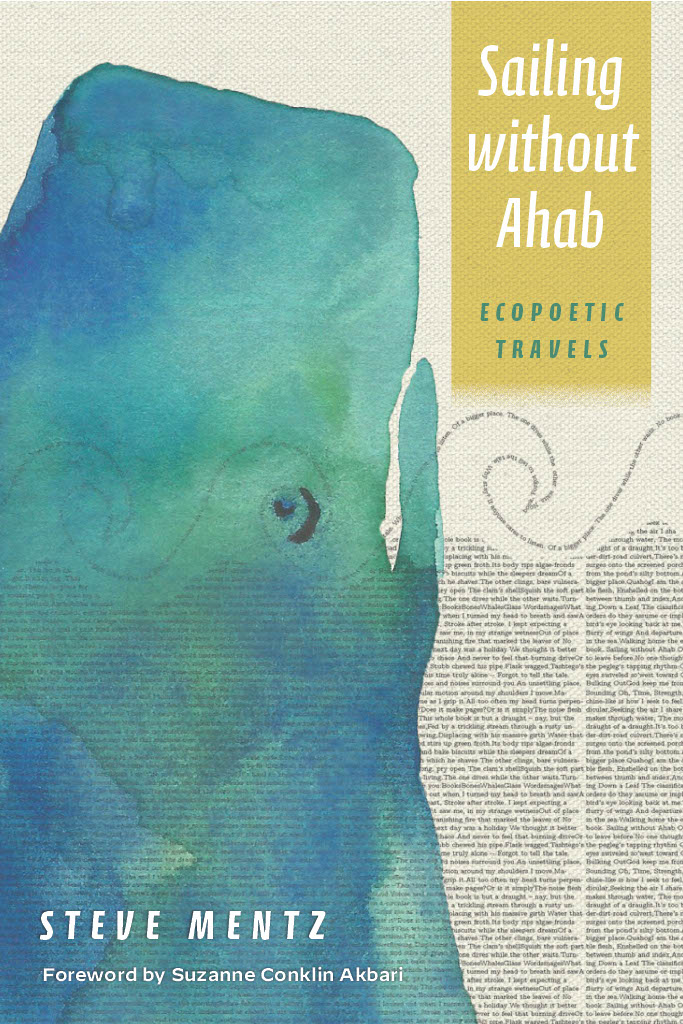I’m so pleased to have a cover to share for my forthcoming book of eco-poetry, Sailing without Ahab, which will appear this coming April from Fordham University Press. Like any parent, I love all my books equally, but this one represents something special, a particular passion project that has been swimming in my imagination for years. I’ll say a little about its history here.

The idea of a version of Moby-Dick that sails with no captain has been niggling my mind for almost a decade. I’ve been thinking about it more and more during my turn toward writing more poetry, which started in the mid-2010s but, like Sailing without Ahab itself, redoubled during the pandemic. For my last appearance at a BABEL conference in Toronto 2015, I put together a tiny chapbook, A Book of Absent Whales, that contains an early smattering of a half-dozen poems. The cover of that lovely little book, designed by then-St. John’s undergrad Idalea Cinquemani, provides the model for the design of the 2024 published book.
Over the next few years, I e-published two excerpts from the project in the Glasgow Review of Books, with the editorial support of the great Tom White. The first in April 2017 introduced the project with three poems, including “The Lee Shore” about shadow-hero Bulkington. The second in May 2018, add two more, including “Great White Evil God,” my meditation on the crucial chapter “The Whiteness of the Whale.”
In 2022, in the wonderful volume Ahab Unbound: Melville and the Materialist Turn, co-edited by Meredith Farmer and Jonathan F.S. Schroeder, I published a prose chapter, “Sailing without Ahab,” that will eventually be the postscript of my volume. That chapter reprinted “The Lee Shore” under its new title, “Bulkington’s Out.”

But the full, global, vastness of Sailing without Ahab, which comprises 138 individual poems, one for each chapter of Moby-Dick plus the Extracts, Etymologies, and Epilogue, will only surface in April 2024.
With thanks to Suzanne Conklin Akbari, another Melville-lover who provides a glittering foreword to the volume, to Courtney Leonard, images of whose stunning ceramic artworks appear in Akbari’s foreword, and to John Wyatt Greenlee of Surprised Eel Mapping, whose intertwining of the Pequod‘s global voyages with my local swimming waters in Short Beach captures exactly what this book attempts. I also appreciate the generous blurb from Craig Santos Perez, the insight and clarity of the reviewers of the manuscript, and the visionary support of Richard Morrison at Fordham University Press.
I’ve published lots of books and articles over the past two decades, but this one will be the most personal, the most poetic, and by far the weirdest thing I’ve published. I hope people enjoy it!